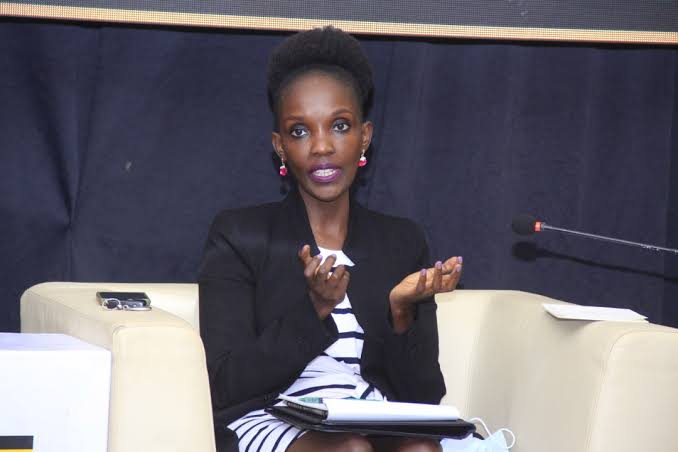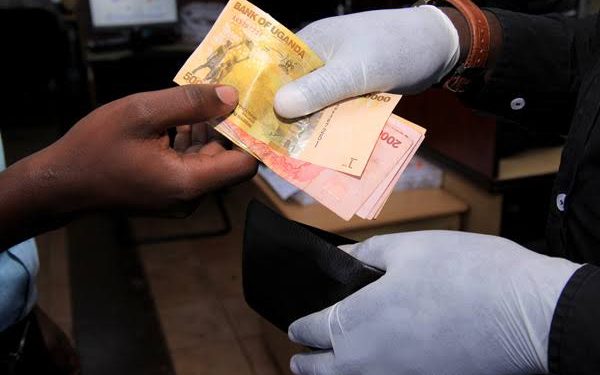Businesses hard-struck by the Covid-19 pandemic that were supposed receive funds through a government of Uganda stimulus package are yet to receive money from the Uganda Development Bank (UDB), close to a year after the succour was announced.
In June last year, government announced about Shs.1 trillion to support small and medium-size enterprises dealing in agro-processing, manufacturing and tourism sectors.
The money was supposed to be channelled to the qualifying entities through UDB. However, it has now emerged that most of the businesses are yet to receive the money.
In January this year, the bank said it disbursed up to Shs.242 billion to vital sectors of the economy in 2020. According to the bank, Shs192b was disbursed to support primary agriculture, agro-industrialisation and manufacturing.
The bank said Kampala Metropolitan Area, which has the largest concentration of Uganda’s businesses, received the largest share of approved loans, standing at Shs109.4b.
Northern Uganda received Shs105.8b, representing 24 per cent of disbursed money, while the western region received Shs77.8b, which translated to 18 per cent. Eastern Uganda received Shs75.7b (17 per cent) while central got Shs74.8b (17 per cent).
According to the bank records, primary agriculture received Shs151.9b, agro-industry Shs134.8b and manufacturing got Shs100.8b. Tourism received Shs20.1b, infrastructure had Shs11.8b and health services got Shs10.6b
SMEs cry out
The small and medium-size enterprises are crying foul over the money and are claiming that “big boys” with political connections have hijacked the kitty leaving out the intended genuine beneficiaries.
Sources within the small and medium-size enterprises sector contend that while the stimulus package should have benefited all businesses hit by the Covid-19 pandemic, the money allocated by government only ended up benefitting few businesses that are highly connected to the ruling government’s functionaries and their proxies.
Mr. John Kakungulu Walugembe, the Executive Director of Federation of Small and Medium-sized Enterprises Uganda says that the members of the federation are stranded because none of them has received the money.
“No, they have not and we have engaged the Uganda Development Bank on that and they told us the money is for those sectors involved in the real economy, those involved in agro processing, manufacturing, tourism and human capital development,” he said.

“They put some money in the Micro Finance Support Centre but that one seems to have got finished and they were mostly targeting the informal groups, but not SMEs. But now when you look at the SME properly, there is still a gap in financing them and I don’t think what exists now is useful for the SMEs really,” Kakungulu added.
Kakungulu said SMEs were the worst hit by the pandemic and that they should have benefited from the money which attracts a lower interest rate compared to what commercial banks are offering. He argues a number of SMEs have closed businesses because they can no longer afford the high cost of operations.
“Very many businesses have closed because of the impact of Covid-19. In our membership we conducted a survey of 1,400 businesses and a quarter of these had closed or the owner had gone into employment or the employer had completely abandoned the business,” he shared in an interview with Vox Populi.
Accordingly, the sector’s leader asserts, a different funding modality should be set up for the SMEs so that they can access friendly loans to boost their businesses.
“What we would propose is a special fund or an SME stimulus package fund and we don’t think UDB is the best place for it because they seem overwhelmed, and have very little footprint on the ground. Maybe this is something that could be run either through the Micro Finance Support Centre or commercial banks should compete for it and sign a performance contract with Bank of Uganda,” he said.
Mr. Everest Kayondo, Chairperson Kampala City Traders’ Association (Kacita) echoed the same sentiment, saying that the money has never benefitted those who should have accessed it. Kayondo accused UDB of setting up stringent conditions that have kicked out most of the businesses from accessing the funds.
“Even where it was put, it was not used at all because you had to go through all the processes of a loan. If you want to rescue somebody, you don’t go through a loan process. They had to go through appraisal, get your collateral, and assess your capacity to repay. Even for the traders to think that any sector benefitted, actually no sector benefitted because the way they arranged it was not favourable to any business community, even to the sectors they targeted it was not beneficial at all,” he said.
Tourism, manufacturing sectors yet to receive money
Players in both tourism and manufacturing are also crying foul, saying that even after the rigorous processes they have gone through, they are yet to receive the money.
Jean Byamugisha, Executive Director Uganda Hotel Owners’ Association yesterday told Vox Populi that members of the tourism sector submitted in their applications after UDB advertised, but are yet to receive the money.
“To tourism, they have not yet disbursed. The communication we have from UDB is that they are in the final stages and that we should be ready by the end of this month. 93 firms applied and 53 qualified to move to the next stage and we haven’t got any additional update but they said they would be informing those who are successful by the end of this month,” Byamugisha said.

Daniel Birungi, the executive director of Uganda Manufacturers’ Association also said he is not aware of members who have received the money. He said the bank should be able to explain how they are disbursing the funds.
“What I can say is that we have seen the advert by the UDB and we forwarded it to our members. Some of the feedback we have got back from them is around the complexity of the processes of accessing the money. Many are indicating that the processes are quite long and that renders many of them unable to access the money,” he said.
He said since the bank deals directly with individual companies, it may be difficult to know who has received the money and who has not. He however admitted that his members said accessing the money is a huge challenge and that many firms have missed out because of the long list of demands.
UDB responds
Patricia Adongo Ojangole, the Executive Director of UDB yesterday said the process of disbursing the money is on and that adverts calling for submission of applications for loans were sent out. She however said small and medium-size enterprises that do not deal in primary production should stop crying foul because they are not part of the beneficiaries of the funds.
However, Ojangole did not provide a list of the firms that have received the funds and to what tune.
“The money we received is not for businesses that are struggling. The package UDB got was for supporting production of essential goods and services in the country,” Ojangole said in a brief phone interview.
Conditions for accessing the loan
According to the call issued by the bank, the credit facility offers a minimum of sh100m at an interest rate not exceeding 12% for borrowing in Uganda shillings. The sectors must cover businesses in the categories of production of essential goods and services, including agriculture production, import replacement and export promotion in industries that process and manufacture food and beverages, textiles, clothing, leather and footwear, paper, printing and publishing, packaging and wrapping materials, chemical and industrial products, timber, woodworks and furniture manufacturing, construction materials, pharmaceutical products, human and animal drugs manufacture, electricals and medical equipment and products including machinery, ventilators and personal protective equipment, among others.
Eligibility Criteria
The bank says for one to be eligible, the business must be registered in Uganda and owned by Ugandans with exceptions to projects of a very strategic nature in terms of development impact and the enterprise can be a start-up or existing business seeking to expand.
Other conditions are; the enterprise promoter must demonstrate feasibility and viability of the project/Business, must be of credible reputation, compliance with all statutory requirements, the enterprise should have social, environmental and economic viability and owners’ equity contribution of between 10% and 60% may be required depending on project specifics and risks. Owners’ collateral is required depending on project specifics and risks and loans will be secured using any form of acceptable collateral.








